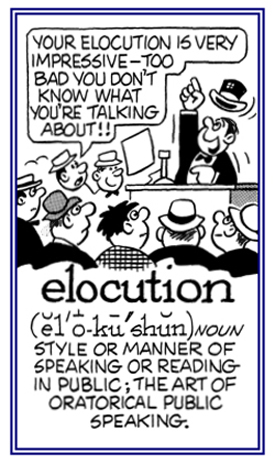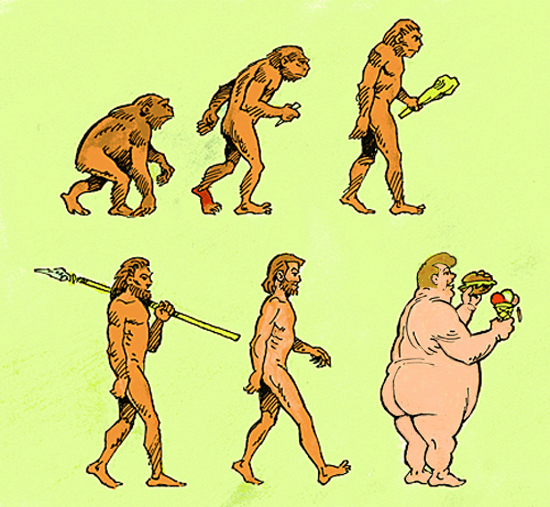-tion
(Latin: a suffix forming nouns from verbs of condition and action; an act or process: resumption, absorption; state or condition, redemption, exhaustion; something resulting from or otherwise related to an act or process, assumption, friction)
This unit is presenting a small fraction of the hundreds of words ending with the suffix of -tion; however, there is a significant number of words which may help everyone have a better understanding and appreciation of the use of this element.
electron injection
1. The release of electrons from one solid material into another solid material.
2. The emission of electrons from one solid into another solid.
3. The process of injecting a beam of electrons with an electron gun into the vacuum chamber of a mass spectrometer, betatron, or other large electron accelerator.
4. The procedure used in forcing a beam of electrons into any large electron accelerator; such as, a beatatron by using an electron gun.
2. The emission of electrons from one solid into another solid.
3. The process of injecting a beam of electrons with an electron gun into the vacuum chamber of a mass spectrometer, betatron, or other large electron accelerator.
4. The procedure used in forcing a beam of electrons into any large electron accelerator; such as, a beatatron by using an electron gun.
The change of an electron from one situation to another one, accompanied by the emission or an absorption of electromagnetic radiation.
1. A way of speaking that requires a command of one’s gestures or voice: While speaking to the audience at the ceremony, Mr. Smart’s elocution showed much competency and captured the complete attention of everybody.
2. The art of speaking clearly and well, with correct enunciations: As a part of her teacher education, Lucy took a course in elocution so she could make herself easily understandable by her future students.

© ALL rights are reserved.
Go to this Word A Day Revisited Index
2. The art of speaking clearly and well, with correct enunciations: As a part of her teacher education, Lucy took a course in elocution so she could make herself easily understandable by her future students.

Go to this Word A Day Revisited Index
so you can see more of Mickey Bach's cartoons.
1. In chemistry, the separation of one material from another one by washing: The processes of elutions can be done when a material contains water-soluble and water-insoluble materials so the passages of the solutions through the mixture will remove the portion that is water-soluble and leave the water-insoluble residue.
2. A method for removing materials from a mixture through washing, then decanting (separating the liquid from the sediment) by pouring off the fluid without disturbing the particles at the bottom: The chemist, Dr. Fergusson, performed an elution of materials by cleansing the pulverized substances and mixing them with water in order to separate the heavier elements which settle down in the solution from the lighter particles that are in the upper part of the liquid.
2. A method for removing materials from a mixture through washing, then decanting (separating the liquid from the sediment) by pouring off the fluid without disturbing the particles at the bottom: The chemist, Dr. Fergusson, performed an elution of materials by cleansing the pulverized substances and mixing them with water in order to separate the heavier elements which settle down in the solution from the lighter particles that are in the upper part of the liquid.
emotion
Knowledge acquired through study and reading: Henry was a reporter with great erudition despite the fact that he never completed his high school education.
The act, instance of, or process of coming out in a sudden explosion, happens or begins suddenly and violently, etc.; such as, a volcanic eruption, a sudden eruption of violence, a skin eruption, etc.
eviction
1. The expulsion of someone; such as, a tenant, from the possession of land by the process of law.
2. Action by a landlord that compels a tenant to leave the premises (as by rendering the premises unfit for occupancy); no physical expulsion or legal process is involved.
2. Action by a landlord that compels a tenant to leave the premises (as by rendering the premises unfit for occupancy); no physical expulsion or legal process is involved.
1. The processes of biological and organic changes in organisms by which descendants grow and thrive differently from their ancestors: Evolutions are supposed to have made more advanced or mature developments of humans.
2. The gradual process of something into a more complex or better form: Evolution is the continuing series of actions from one state or condition to another or from one shape to another.
3. The theoretical amount by which all species develop from earlier forms of life: According to this theory of evolution, it is a natural variation in the genetic material of a population that favors reproduction by some individuals more than others; so that, over the generations all members of certain inhabitants have come to possess the favorable or unfavorable modern traits as shown in the illustration below.


2. The gradual process of something into a more complex or better form: Evolution is the continuing series of actions from one state or condition to another or from one shape to another.
3. The theoretical amount by which all species develop from earlier forms of life: According to this theory of evolution, it is a natural variation in the genetic material of a population that favors reproduction by some individuals more than others; so that, over the generations all members of certain inhabitants have come to possess the favorable or unfavorable modern traits as shown in the illustration below.


1. The instance of a harsh demand: The kidnappers required an exaction of a million Euros from the couple before returning their daughter.
2. A set price charged for a service or privilege: In order to become a member of the selected group, an exaction was levied.
2. A set price charged for a service or privilege: In order to become a member of the selected group, an exaction was levied.
An excerpt which is selected or gleaned from a written context, etc.
1. The act of killing someone; especially, as punishment for a criminal killing of another person or other people: "Bruno's execution took place with a lethal injection."
2. The process or act of doing or performing something: "Galen and Delmar promised to put the plan into execution immediately."
2. The process or act of doing or performing something: "Galen and Delmar promised to put the plan into execution immediately."
"Haley's ideas were brilliant, but her execution of them was sloppy and unacceptable."
"Dale's skillful executions of the dances won him fame and a number of requests to perform in other shows."
3. Etymology: from Anglo-French execucioun and Old French execucion, "a carrying out" (of an order, etc.) which came from Latin executionem, executio, "an accomplishing", a noun of action from the past participle verb stem of exequi, exsequi, "to follow out"; from ex-, "out" + sequi, "to follow".
exemption
exertion
1. The use of physical or mental energy; hard work.
2. The act or an instance of exerting, especially a strenuous effort.
2. The act or an instance of exerting, especially a strenuous effort.


